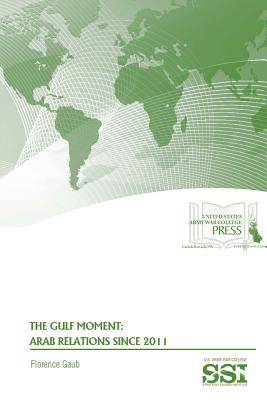
- Afhalen na 1 uur in een winkel met voorraad
- Gratis thuislevering in België vanaf € 30
- Ruim aanbod met 7 miljoen producten
- Afhalen na 1 uur in een winkel met voorraad
- Gratis thuislevering in België vanaf € 30
- Ruim aanbod met 7 miljoen producten
Zoeken
The Gulf Moment
Arab Relations Since 2011
Florence Gaub, Strategic Studies Institute, U S Army War College
Paperback | Engels
€ 21,45
+ 42 punten
Omschrijving
What began in 2011 as a series of demonstrations against domestic circumstances has since evolved into a decidedly regional and therefore strategic matter. The changing of regimes in Tunis, Cairo, and Tripoli has also changed the way Arab leaders engage with each other, and the way the region as a whole orchestrates its interstate relations. Often overlooked during debates about what began 4 years ago, the Arab Spring has spilled over from the national to the regional level, paralyzing some traditionally strong actors while empowering others. As Dr. Florence Gaub writes in this monograph, the region has therefore entered its "Gulf Moment"-a time in its political relations defined no longer by Cairo, Damascus, or Baghdad, but by Riyadh, Abu Dhabi, and Doha. For the longest time, the Arab Gulf States were seen as political bystanders in the region, managing rather than shaping events.
Specificaties
Betrokkenen
- Auteur(s):
- Uitgeverij:
Inhoud
- Aantal bladzijden:
- 52
- Taal:
- Engels
Eigenschappen
- Productcode (EAN):
- 9781329781207
- Verschijningsdatum:
- 22/12/2015
- Uitvoering:
- Paperback
- Formaat:
- Trade paperback (VS)
- Afmetingen:
- 152 mm x 229 mm
- Gewicht:
- 90 g

Alleen bij Standaard Boekhandel
+ 42 punten op je klantenkaart van Standaard Boekhandel
Beoordelingen
We publiceren alleen reviews die voldoen aan de voorwaarden voor reviews. Bekijk onze voorwaarden voor reviews.











